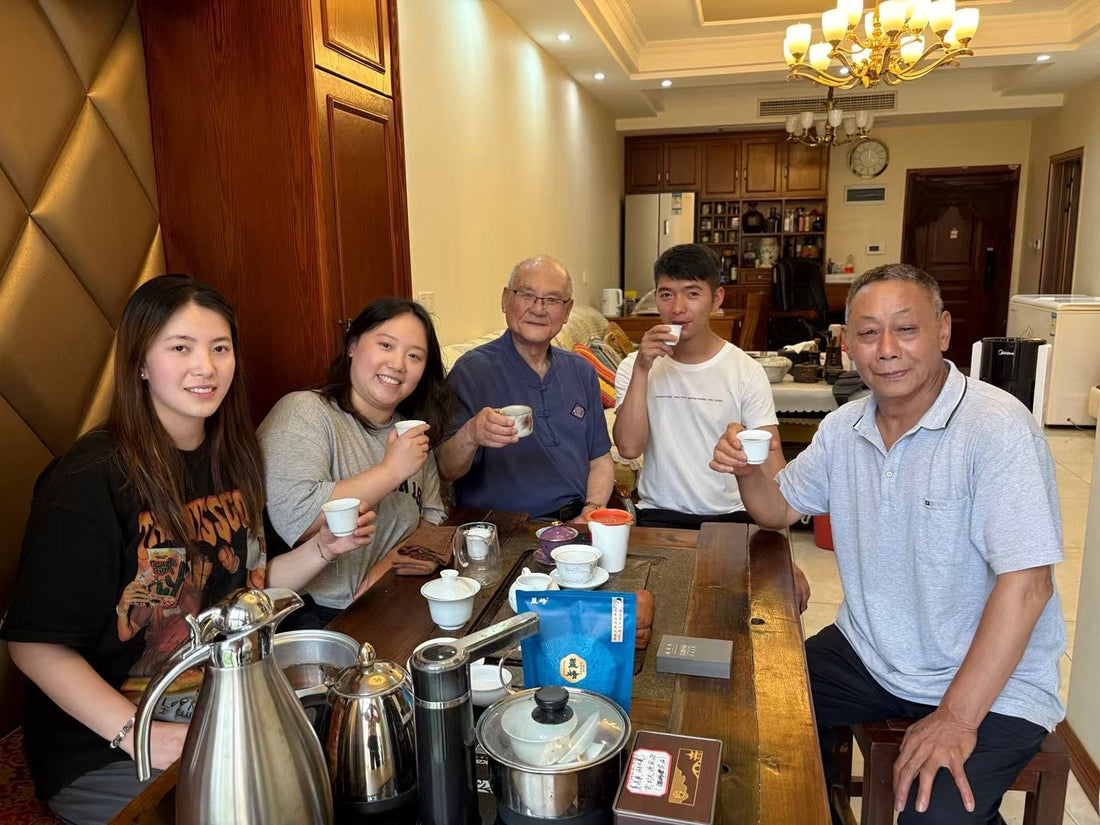
Enshi Wildbrook Village Portrait 7 | Masters, Mountains, and the Cooperative Dream
Share
From Data to Tea
I‘m June, founder of FlowerInverseTea, lead of Wildbrook Cooperative.
I was born in Hubei, a mountain province in central China known for its rivers and quiet strength.
For many years I worked with numbers, building models and charts, trying to understand how people behave through patterns.
But after a while I began to feel empty.
The work made a few people richer, but it did not make life better for anyone.
Tea brought me back to what felt real.
When I came to Enshi, a misty region in western Hubei, I felt I had returned home.
People here still made tea by hand, the same way their parents and grandparents did.
Behind every cup, I saw patience, honesty, and care — things no data set could ever measure.
So we built the Wildbrook Village Cooperative.
We wanted to see if a small group of ordinary people could build something fair without big investors or powerful names.
Most of us never studied past middle school, but we share the same idea: work can be clean, open, and kind.
We make tea together and share profits openly.
There is no secret owner.
Everyone contributes, everyone learns, and everyone smiles.
I finally found real happiness here , not in chasing growth for a few, but in testing a way of life where everyone grows together.
If this model can succeed in our small valley, maybe it can stand as proof that fairness can be practical, and joy can be shared.
The Masters Who Guide Us
Two people shaped how I understand tea: Master Yang Shengwei, the National Representative Inheritor of Enshi Yulu craftsmanship, and Teacher Zhou, the farmer who planted many of our oldest tea trees almost fifty years ago.
Master Yang — Keeper of the Steam
Master Yang has made Enshi Yulu since the 1960s.
He is more than a craftsman.
He helped define the official national standard for Enshi Yulu — setting how this rare steamed green tea is recognized and judged across China.
He preserved a fragile process that survived quietly in the mountains of Hubei while most of the country turned to pan-firing.
Over the years he trained hundreds of students and reminded everyone that tea is both chemistry and culture.
Whenever we visit his small workshop, he smiles and says,
“A good tea is half science, half heart.”
That line became a compass for us.
We use chemistry to understand oxidation, aroma, and steaming temperature, but never forget the rhythm of hand and fire.
Every experiment must still taste like our mountains.
Teacher Zhou — The Roots Beneath the Leaves
Teacher Zhou connects this science to the soil.
In 1975 he planted tea trees along the hillside behind the village.
Many still stand today, their roots gripping stone and memory.
He never used chemical fertilizer.
He trusted compost from the cows that graze near the gardens and believed in listening to the land.
Because of him, the soil stayed rich and the flavor stayed clean.
Between Generations
When Master Yang speaks about refining Enshi Yulu and Teacher Zhou walks through the fields showing where the first shoots appear each spring, I see the bridge between them — the craftsman and the farmer, science and patience, tradition and renewal.
They remind me that a tea workshop is not just a place to make tea.
It is a living conversation between what was learned and what is still being discovered.
Continuing the Flow
At Wildbrook Village we keep that conversation alive.
We adjust steaming times by seconds, refine oxidation, and map flavor chemistry leaf by leaf, while keeping our feet in the same soil where Teacher Zhou once planted and Master Yang once taught.
Through them, Enshi Yulu is more than a tea.
It is a way of understanding how wisdom, curiosity, and care can flow together — from masters to farmers, from data to tea, and from one village into the world.